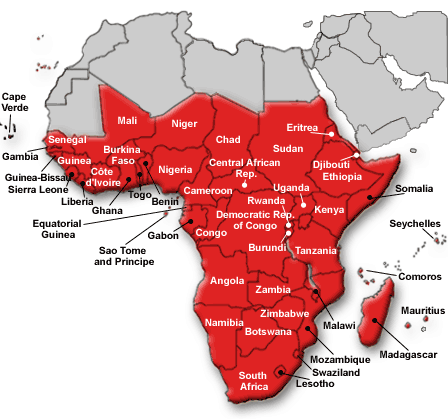An ongoing dialogue on HIV/AIDS, infectious diseases,
May 14th, 2010
The Luxury of the START Study … and Running Out of ART in Uganda
 Over on our Journal Watch AIDS Clinical Care site, we did a poll asking about the ongoing START study:
Over on our Journal Watch AIDS Clinical Care site, we did a poll asking about the ongoing START study:
In the START study, HIV-infected patients with CD4 counts greater than 500 cells per cubic mm are being randomized to start antiretroviral therapy right away or to wait until the CD4 count falls to 350 cells per cubic mm or below. If there were a START study site in your community, would you refer eligible patients to it?
87% said they would — which is interesting, since the study is having trouble enrolling, at least in some sites. If the study succeeds, we may learn definitively if treatment should be started at CD4 cell counts > 500, a longstanding debate in the field.
But the dilemma posed by the START study stands in sharp contrast to this life and death news about HIV treatment programs running out of money in Sub-Saharan Africa:
The global war on AIDS has racked up enormous successes over the past decade, most notably by providing drugs for millions of infected people in developing countries who would be doomed without this life-prolonging treatment. Now the campaign is faltering …
Although the number of Ugandans receiving drug treatments jumped from fewer than 10,000 a decade ago to nearly 200,000 today, hundreds of thousands more Ugandans need the drugs and likely can’t get them because clinics now routinely turn new patients away.
In the context of a limited supply of medications, the best approach to providing HIV treatment is to treat the sickest first — patients such as those described here in this NY Times article. But after the drugs run out, then what?
All of which goes to show that even the option of doing the START study is an incredible luxury, and that a person needing treatment for HIV is very very lucky to live here and not in Sub-Saharan Africa.
Categories: Health Care
Tags: antiretroviral therapy, HIV, START study
You can follow any responses to this entry through the RSS 2.0 feed. Both comments and pings are currently closed.
One Response to “The Luxury of the START Study … and Running Out of ART in Uganda”

Paul E. Sax, MD
Contributing Editor
NEJM Journal Watch
Infectious Diseases
Biography | Disclosures | Summaries
Learn more about HIV and ID Observations.
Search this Blog
Follow HIV and ID Observations Posts via Email
Archives
-
-
From the Blog — Most Recent Articles
- ID Things to Be Grateful for — 2025 Edition November 24, 2025
- When AI Gets the Medical Advice Wrong — and Right November 18, 2025
- Hot Takes from IDWeek: CDC, COVID, and Two Doses of Dalbavancin November 13, 2025
- Favorite ID Fellow Consults: Johns Hopkins Edition November 7, 2025
- Two Covid Vaccine Studies — One Actionable, the Other Not So Much October 28, 2025
 NEJM Journal Watch — Recent Infectious Disease Articles
NEJM Journal Watch — Recent Infectious Disease Articles-
Tag Cloud
- Abacavir AIDS antibiotics antiretroviral therapy ART atazanavir baseball Brush with Greatness CDC C diff COVID-19 CROI darunavir dolutegravir elvitegravir etravirine FDA HCV hepatitis C HIV HIV cure HIV testing ID fellowship ID Learning Unit Infectious Diseases influenza Link-o-Rama lyme disease medical education MRSA PEP PrEP prevention primary care raltegravir Really Rapid Review resistance Retrovirus Conference rilpivirine sofosbuvir TDF/FTC tenofovir Thanksgiving vaccines zoster

An important point! The article in the NY times is chilling. Why does the medical community not learn? Yet, another vertical system – mother-infant health while ignoring the bigger picture? This is again only a bandaid on a much larger problem – we need health sector reform and overall strengthening! It is true that the international community should not are take governments out of their responsibility of providing adequate care for their people. But have we not bred that problem ourselves by going into countries and ignoring all local structures assuming they were corrupt anyway? Should we now, when interest is declining, make the convenient point of good governance at the expense of the poor and dis-enfranchised when for years we did not care as long as the government let us do whatever we wanted? When will the medical community learn that one problem cannot be taken out of context and that global health is not just medicine but needs to address all parts of society!